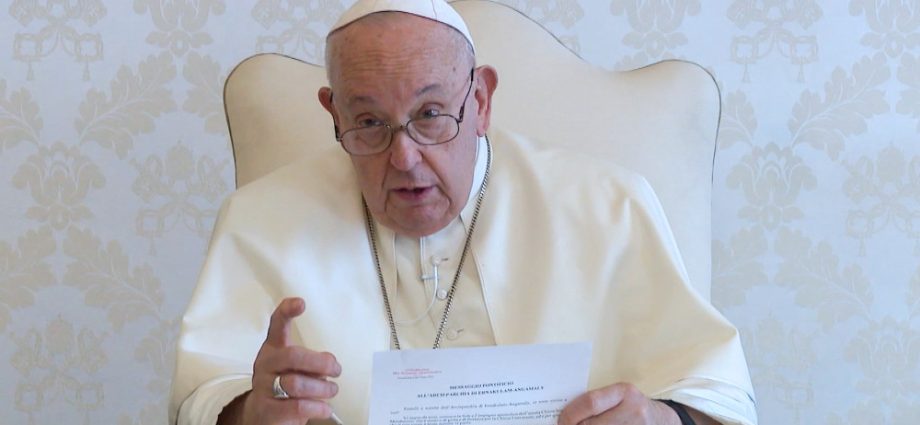By Carlos Luis
Bengaluru, Dec 8, 2023: Liturgy is the source and summit of Christian life. It is a nursery of Christian life wherein one learns the basic principles and understands the importance of celebrating one’s life.
It is in the liturgy that one can experience the Love of Christ and rediscover oneself. Sadly, the focus of the current strife among the Eastern Catholic Church in full communion with the Catholic Church, the Syro-Malabar Archeparchy of Ernakulam-Angamaly, is the priest’s orientation (Facing the Altar or Facing the Congregation) during various sections of the Holy Qurbana (Eucharistic celebration).
Uniform rubrics were released in 1999 by the Synod of Bishops of the Syro-Malabar Church to standardize Eucharistic celebrations. The choice was made to have the priest face the altar throughout the Eucharistic Prayer, but turn to face the people after Communion and during the Liturgy of the Word. Dispensations, on the other hand, were given in a few dioceses, such as the Archdiocese of Ernakulam-Angamaly, enabling priests to face the congregation the whole liturgy.
When the bishops planned to terminate these dispensations in November 2021, the Archdiocesan Movement for Transparency, a group inside the Ernakulam-Angamaly Archdiocese, protested and showed resistance. This group, which included clergy, laypeople, and priests, argued in favour of continuing the custom of priests addressing the congregation rather than revoking the dispensation.
Pope Francis addressed the archdiocese’s faithful in a video message on December 7, urging them to follow the synod’s guidelines by Christmas 2023. He acknowledged resistance may be worldly and not inspired by the Holy Spirit. He stressed the importance of deference to the bishop and warned against discord and sect formation. The Pope stressed the need for Church unity, obedience, and humility among clergy and faithful.
Restoring unity and repairing the rift within the Church are priorities that Pope Francis underlined. He pleaded with the clergy and faithful to stay in the Catholic Church and to abstain from taking any steps that would cut them off from their pastors and Peter’s successor, the Pope. The Pope urged the maintenance of unity and issued a warning against severing the Body of Christ, which is represented by the Eucharist.
The state of affairs in the Ernakulam-Angamaly Archdiocese is indicative of the difficulties the Church has in resolving internal conflicts and preserving unity. Within the framework of the Catholic Church, the Pope’s teachings emphasize the significance of reconciliation, communion, and adherence to the gospel.
The Holy Qurbana is a significant symbol of unity within Eastern Christian traditions, including the Syro-Malabar Church. It is a central act of worship that involves common prayers, hymns, and rituals, uniting the worshipping community in a shared spiritual experience. The pinnacle of the Holy Qurbana is the Eucharistic Communion, where the faithful partake in the Body and Blood of Christ, symbolizing the unity of the Church.
The liturgical structure of the Holy Qurbana includes Scripture readings, prayers, and the consecration of the Eucharistic elements.
Symbolic actions, such as sharing of peace and offering of gifts, underscore the communal and participatory nature of the Christian worship experience. The celebration is celebrated within the liturgical calendar, which fosters unity as Christians worldwide commemorate the same events in Christ’s life. The Liturgy of the Word, which consists of Bible readings, enhances the sense of unity in the faith.
The ecclesial communion signifies the unity of the Christian community with its pastors and the universal Church. So, before getting into more dispute one must remind oneself of the beauty of the liturgical celebration one is bestowed with and accept the changes that come one’s way.
(Carlos Luis is a priest belonging to the Society of the Catholic Apostolate (Pallottine) and is currently studying for a Licentiate degree in Moral Theology at Dharmaram Vidya Kshetram, Bengaluru. He comments on social and moral issues. He could be contacted – carllui1990@gmail.com)


The irony in the Indian Catholic Church today is that a vast majority of the Prelates/clergy is rarely bothered about what Pope Francis speaks or writes. Why? Their focus is mainly on their petty politics.